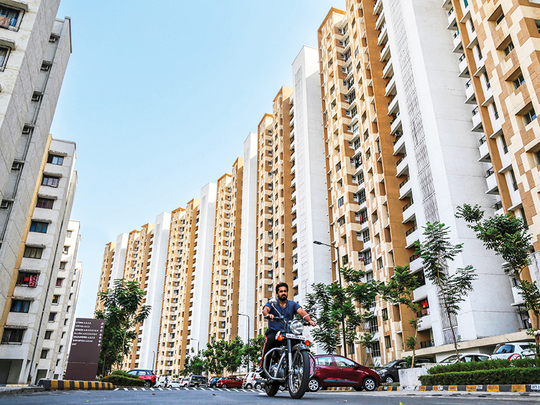
Bengaluru: Indian house prices will barely rise this year despite an economic recovery and supportive policies, though the risk of a COVID-19 resurgence derailing activity is low, according to a Reuters poll.
The poll of 13 property analysts showed average house prices in India would rise 1.3 per cent this year and that not until 2022 would the increase equal the inflation rate with a rise of 4.5 per cent. Still, that was a U-turn from a 3 per cent decline predicted for this year in September, when the housing market was being stifled by the pandemic, which left millions unemployed. (The previous 2022 forecast was a 2.8 per cent increase.)
The market gained some traction late last year, cushioned by massive fiscal stimulus, accommodative monetary policy and signs of a better-than-expected economic rebound. That followed a quarter-over-quarter decline of 1.1 per cent in the house price index during the July-September period, its steepest fall since January-March 2019, according to Reserve Bank of India data.
Prices in Chennai would also remain stagnant while an increase of 2.5 per cent was expected in Bengaluru, compared to no change in the last poll for both IT hubs.
Time to enter
"India's economic resilience and a quick turnaround post the unlock has given possibly the biggest boost to buyers to enter the residential market with greater long-term confidence in India's economic recovery," said Rohan Sharma, head of research at Cushman Wakefield.
A 2021 price rise was last expected in a March 2020 poll, just before the stringent lockdown was imposed. Ten of 13 respondents who answered an additional question said an economic recovery would be the primary driver of housing market activity this year. Two pointed to an easy monetary policy, while one cited a desire for more living space.
At full tilt
India's economy was forecast to grow 9.5 per cent in next fiscal year assisted by an expansionary federal budget, a Reuters poll taken this month showed.
Ten of 12 market experts who responded to another question expected a significant boost to housing activity from policies in the union budget, due on February 1.
"Expected is relief for second homeowners, promotion of tax concessions for new home buyers and concessions for builders/promoters, giving the sector industry status, and access to cheaper capital and loan reclassification extensions," said Ajay Sharma, managing director at Colliers International.
All 12 respondents to another question said housing activity would accelerate this year and, when asked about the risk of a resurgence of COVID-19 derailing the housing market this year, 11 of 13 said it was low.
"Unlike early predictions, the residential market rebounded much faster than other segments and the momentum continues to remain strong amidst growing demand for homeownership," said Anuj Puri, chairman at Anarock Property Consultants.








